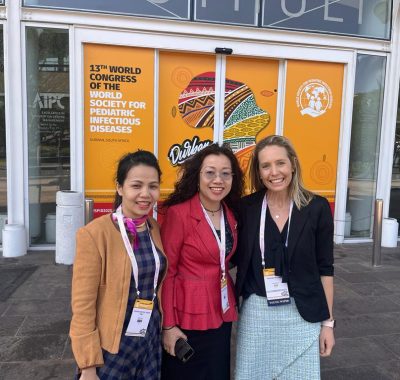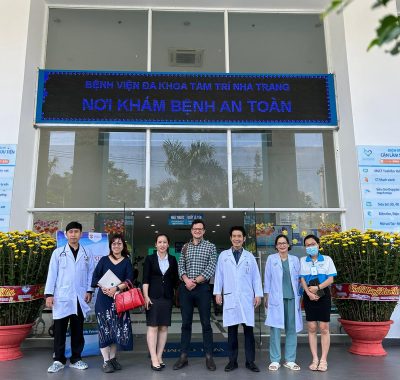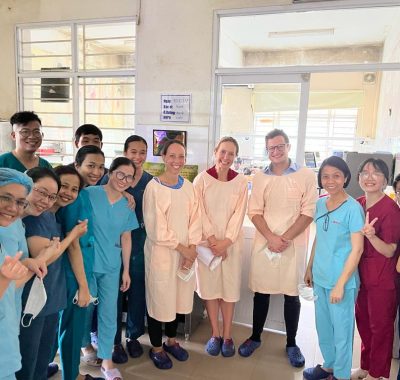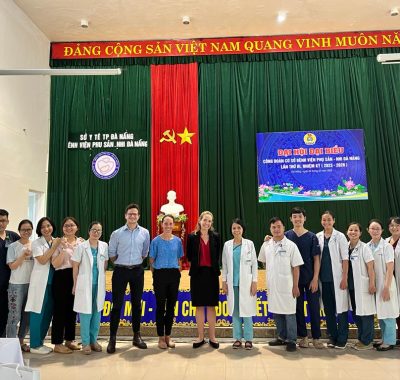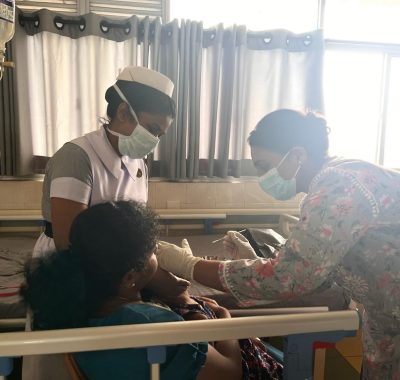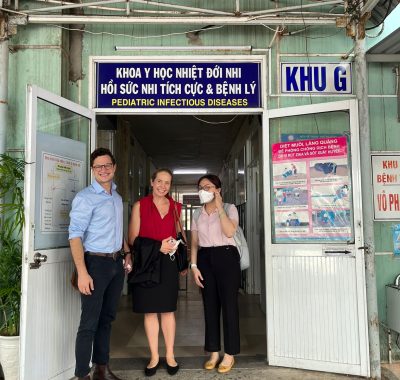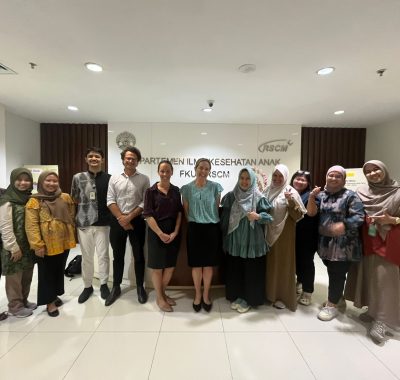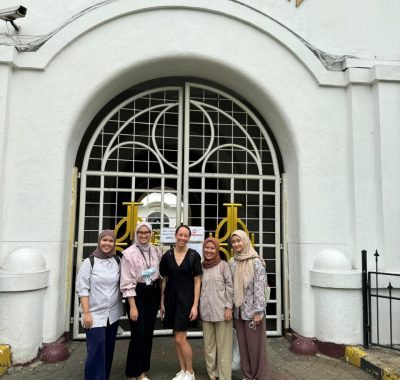NeoCOL
NeoCOL
Delineating the risk factors and source of neonatal acquisition of multidrug-resistant gram-negative bacteria in high-burden countries in Southeast Asia and the Pacific.
The NeoCOL study is jointly funded by the National Health and Medical Research Council, The Sydney Infectious Diseases Institute, and the Avant Early Career research grant. This study aims to evaluate the timing and acquisition of multidrug-resistant bacterial colonisation for mothers and babies, and how this predisposes to the risk of infection. NeoCOL launched at Cipto Mangukusomo Hospital in Jakarta, Indonesia, in March 2024 with future sites across Southeast Asia planned in the near future. This study also aims to explore the impact of antibiotic exposure and colonisation with MDR bacteria on the infant microbiome, whilst a substudy is also exploring the prevalence of Group B Streptococcus (GBS) colonisation in Mothers, and the risk of subsequent GBS infection in babies.
Why is NeoCOL needed?
Neonatal colonisation with multidrug-resistant bacteria typically occurs before an episode of sepsis. This bacteria may be acquired vertically – ie, from the birth canal – or horizontally, due to exposure to bacteria in the hospital setting in the first days of life.
There are limited data available globally to identify the chains of transmission between the community, mothers and babies predisposing to bacterial colonisation and infection. This study will help us better understand these pathways of infection and colonisation, to interrupt chains of transmission via optimal infection, prevention and control strategies.
What is involved in the study?
This study is systematically recruiting all eligible mother-infant-dyads birthing at Cipto Mangunkusumo Hospital in Jakarta, Indonesia. Swabs are taken from both the mother and infant at birth, and again from the infant at different time-points during their hospital admission, and once again at discharge. All participants will have detailed clinical and microbiological data collected and will each be followed up for six-months to understand the clinical outcomes associated with colonisation with multidrug-resistant bacteria. Environmental samples will also be collected to identify any sources that may be driving further transmission in the hospital environment.
Standard operating procedures:
- Standard operating procedure 1: Neonatal Rectal Swab
Download
- Standard operating procedure 2: Maternal Rectovaginal Swab
Download
- Standard operating procedure 3: Stool Collection
Download - Standard operating procedure 4: Genetic Sample Processing and Storage
Download
- Standard operating procedure 5: MDR Sample Processing and Storage
Download
- Standard operating procedure 6: GBS Sample Processing
Download
- Standard operating procedure 7: Positive isolate storage
Download
- Standard operating procedure 8: Environmental Swab collection and processing
Download - Standard operating procedure 9: Fungal Sample Processing
Download - Standard operating procedure 10: GBS Serotyping and AST
Download
Further Reading:
- Styczynski A, Amin MB, Hoque KI, et al. Perinatal colonization with extended-spectrum beta-lactamase-producing and carbapenem-resistant Gram-negative bacteria: a hospital-based cohort study. Antimicrob Resist Infect Control. 2024 Jan 29;13(1):13.
- Chomkatekaew C, Thaipadungpanit J, Hearn P, Soeng S, Pol S, Neou L, et al. Detection of maternal transmission of resistant Gram-negative bacteria in a Cambodian hospital setting. Frontiers in Microbiology 2023;14.
- Auguet OT, Niehus R, Gweon HS, et al. Population-level faecal metagenomic profiling as a tool to predict antimicrobial resistance in Enterobacterales isolates causing invasive infections: An exploratory study across Cambodia, Kenya, and the UK. EClinicalMedicine. 2021 May 30;36:100910
- Mayanja R, Muwonge A, Aruhomukama D, Katabazi FA, Bbuye M, Kigozi E, et al.. Source-tracking ESBL-producing bacteria at the maternity ward of Mulago hospital, Uganda. PLOS ONE 2023;18(6):e0286955
- Matok LA, Azrad M, Leshem T, Abuzahya A, Khamaisi T, Smolkin T, et al.. Mother-to-Neonate Transmission of Antibiotic-Resistant Bacteria: A Cross-Sectional Study. Microorganisms 2021;9(6):1245.
- Milenkov M, Rasoanandrasana S, Rahajamanana LV, Rakotomalala RS, Razafindrakoto CA, Rafalimanana C, et al. Prevalence, Risk Factors, and Genetic Characterization of Extended-Spectrum Beta-Lactamase Escherichia coli Isolated From Healthy Pregnant Women in Madagascar. Frontiers in Microbiology 2021;12.
- Frank Wolf M, Abu Shqara R, Naskovica K, Zilberfarb IA, Sgayer I, Glikman D, et al.. Vertical Transmission of Extended-Spectrum, Beta-Lactamase-Producing Enterobacteriaceae during Preterm Delivery: A Prospective Study. Microorganisms 2021;9(3):506.
- Neemann K, Olateju EK, Izevbigie N, Akaba G, Olanipekun GM, Richard JC, et al.. Neonatal outcomes associated with maternal recto-vaginal colonization with extended-spectrum β-lactamase producing Enterobacteriaceae in Nigeria: a prospective, cross-sectional study. Clinical Microbiology and Infection 2020;26(4):463–9.
- Roberts T, Limmathurotsakul D, Turner P, Day NPJ, Vandepitte WP, Cooper BS. Antimicrobial-resistant Gram-negative colonization in infants from a neonatal intensive care unit in Thailand. Journal of Hospital Infection [Internet] 2019;103(2):151–5.
- Kagia N, Kosgei P, Ooko M, et al. Carriage and Acquisition of Extended-spectrum β-Lactamase-producing Enterobacterales Among Neonates Admitted to Hospital in Kilifi, Kenya. Clin Infect Dis. 2019 Aug 16;69(5):751-759
- Nanayakkara D, Liyanapathirana V, Kandauda C, Gihan C, Ekanayake A, Adasooriya D. Maternal vaginal colonization with selected potential pathogens of neonatal sepsis in the era of antimicrobial resistance, a single center experience from Sri Lanka. BMC Infectious Diseases [Internet] 2018;18(1).
- Kurz MSE, Bayingana C, Ndoli JM, Sendegeya A, Durst A, Pfüller R, et al.. Intense pre‐admission carriage and further acquisition of ESBL‐producing Enterobacteriaceae among patients and their caregivers in a tertiary hospital in Rwanda. Tropical Medicine & International Health [Internet] 2017;22(2):210–20.
- Turner P, Pol S, Soeng S, Sar P, Neou L, Chea P, et al.. High Prevalence of Antimicrobial-resistant Gram-negative Colonization in Hospitalized Cambodian Infants. Pediatric Infectious Disease Journal 2016;35(8):856–61
- Rettedal S, Löhr IH, Bernhoff E, Natås OB, Sundsfjord A, Øymar K. Extended-spectrum β-lactamase-producing Enterobacteriaceae among pregnant women in Norway: prevalence and maternal–neonatal transmission. Journal of Perinatology 2015;35(11):907–12.
